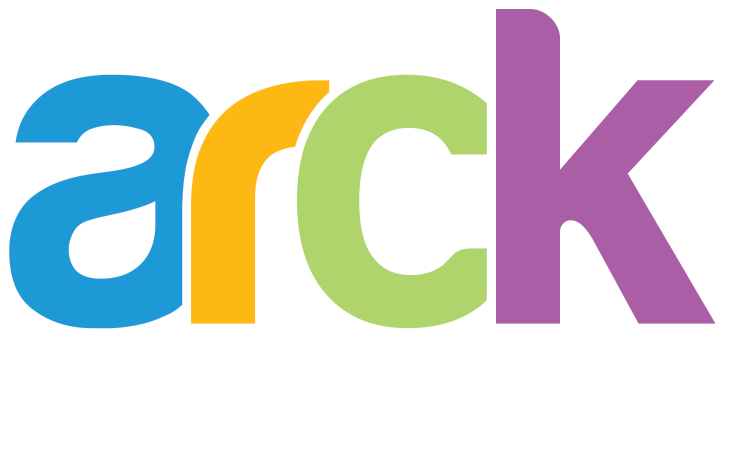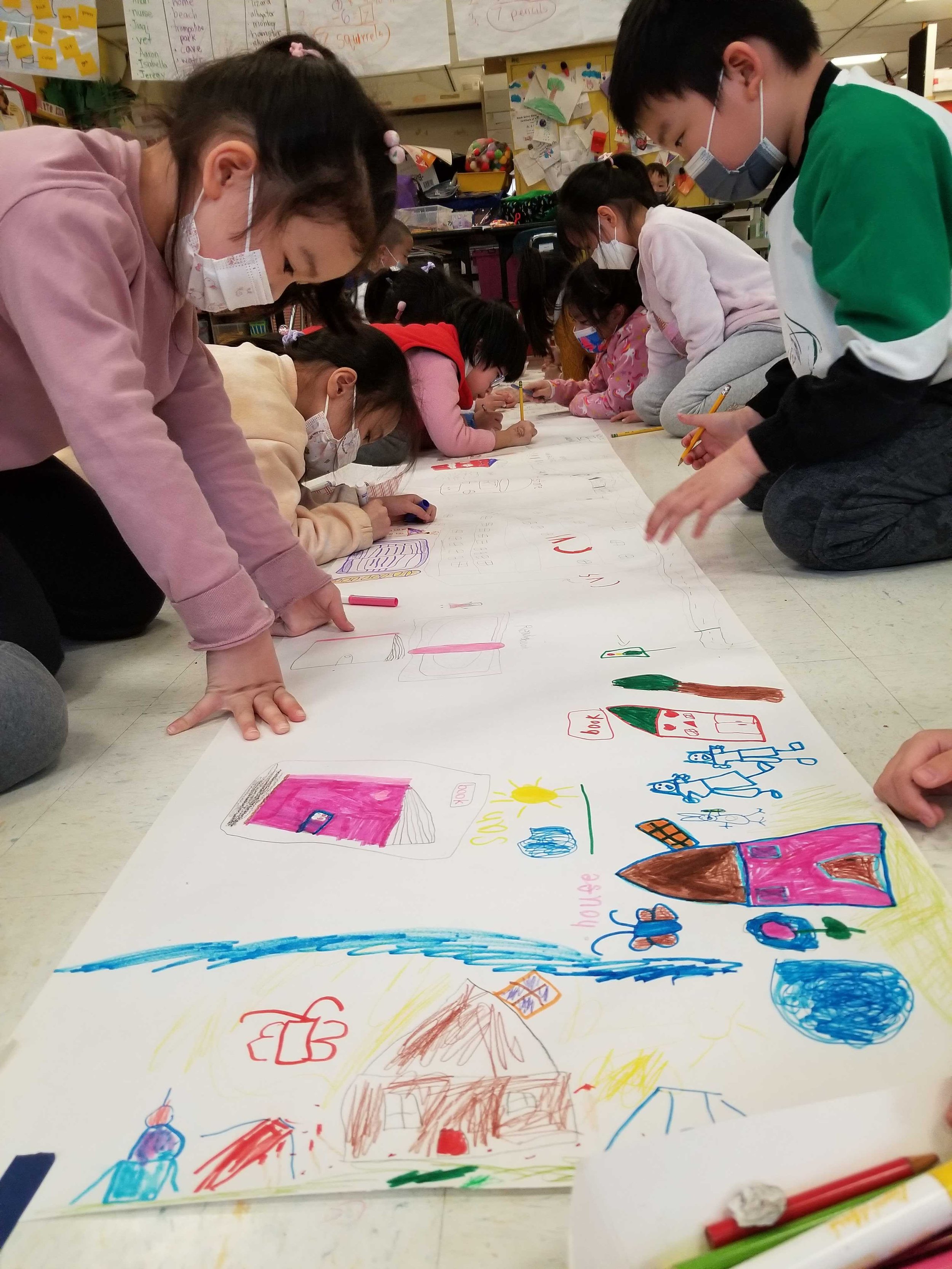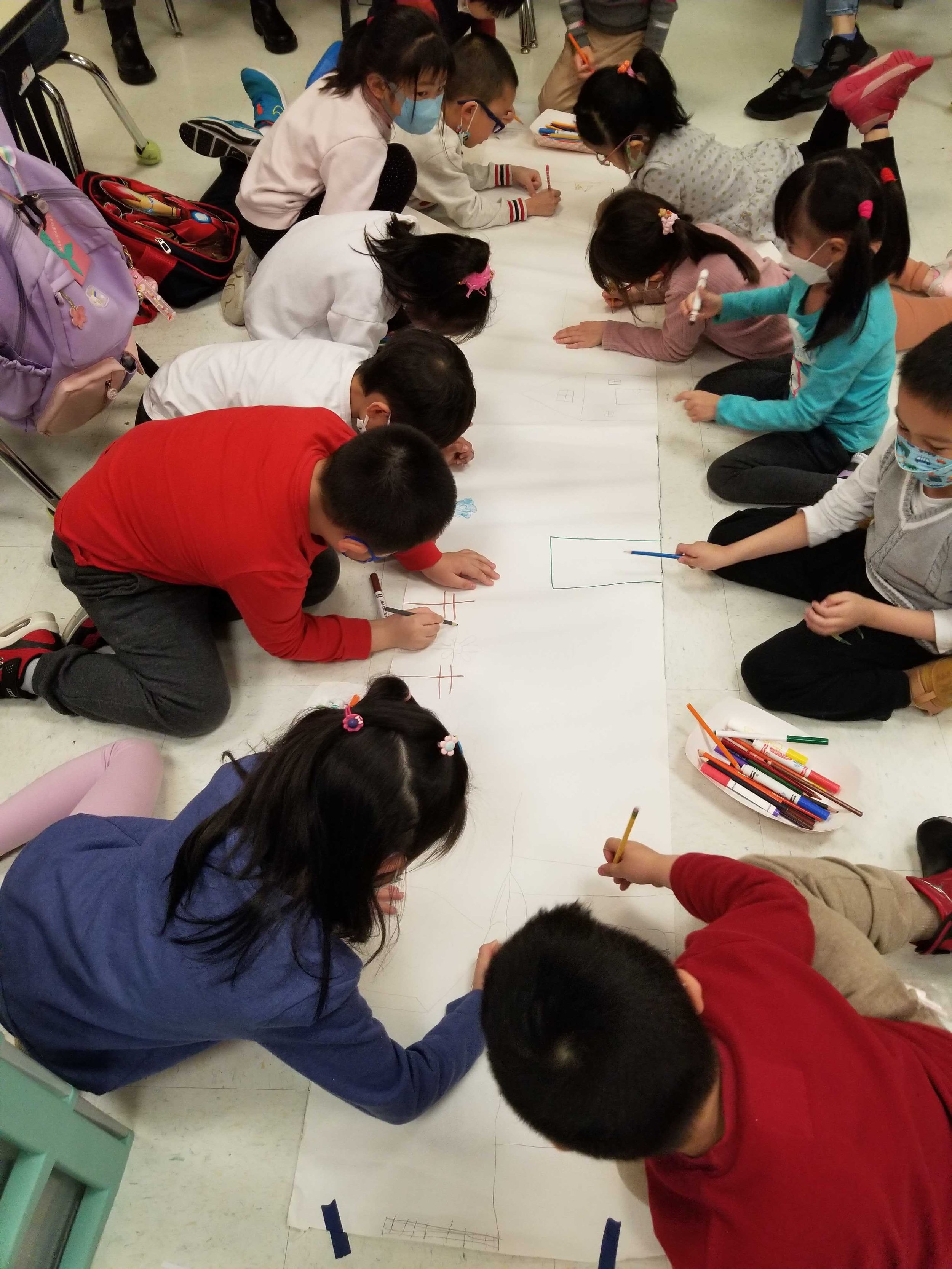SEL Day - March 10th, 2023
In late February, ARCK Lead Teaching Artist Maria Palkon asked her students to create an island for the class to live on together. The project was typical of ARCK’s Creativity Catalyst curricular framework, integrating creative arts skills such as sketching, drafting, and design-thinking with a real-world problem – in this case, city planning and design. But perhaps most importantly, it highlighted a facet of education that has quietly been lost in the wake of COVID-19: social-emotional learning (SEL).
Fundamental to ARCK’s innovative Creativity Catalyst framework is social-emotional learning (SEL). Coined in the 1960s by scientists at the Yale School of Medicine, SEL is a key aspect of all student learning. According to the Collaborative for Academic, Social, and Emotional Learning (CASEL):
SEL is the process through which all young people and adults acquire and apply the knowledge, skills, and attitudes to develop healthy identities, manage emotions and achieve personal and collective goals, feel and show empathy for others, establish and maintain supportive relationships, and make responsible and caring decisions.
As Maria’s students prepared their island community together, they had to consider important questions related to SEL. How do we satisfy our individual needs while also caring for the whole? How do we handle disagreements? What happens when things don’t go the way we wanted?
For most adults, the answers to these questions seem obvious, but for students who were in school during the pandemic, these questions can prove daunting. When schools were forced online in March 2020, students were suddenly isolated from their peers. Students could no longer make friends, navigate conflict, or develop personal identity. This loss of connection, belonging, and purpose occurred during a vitally important formative period, and it had a disastrous effect on student mental health. According to the CDC, more than a third of high school students reported experiencing poor mental health in 2021, and 44% reported feeling sad or hopeless throughout the year. This affects all areas of student life; mental health plays a key role in both quality of life and student academic outcomes such as grade point average and school attendance.
Despite mounting evidence in support of the explicit teaching of social-emotional skills, most schools and educators are unequipped to support students as they seek to repair the damage done by the pandemic. This is where ARCK plays a crucial role. ARCK’s Creativity Catalyst framework seeks to ensure that students develop SEL skills in conjunction with their academic learning. Our curriculum educates the whole student, integrating social-emotional skills such as self-awareness, identity, and community with day-to-day classroom activities, and the arts are a perfect vehicle for teaching these skills.
The skills Maria’s students learned as they designed their island home are invaluable to their success in the classroom and beyond, and they are more necessary now than ever before. As we seek to repair the unfinished learning caused by the pandemic, we mustn’t forget the importance of social-emotional skills. Since its inception in 2012, ARCK has maintained a consistent record of success in both social and academic learning. In fact, 99% of our partner teachers reported that students showed social-emotional growth due to ARCK’s innovative programming. Social-emotional learning is crucial for students as they seek to repair the harm done by the pandemic, and ARCK is excited to continue working to improve both social and academic outcomes for all of our students.



